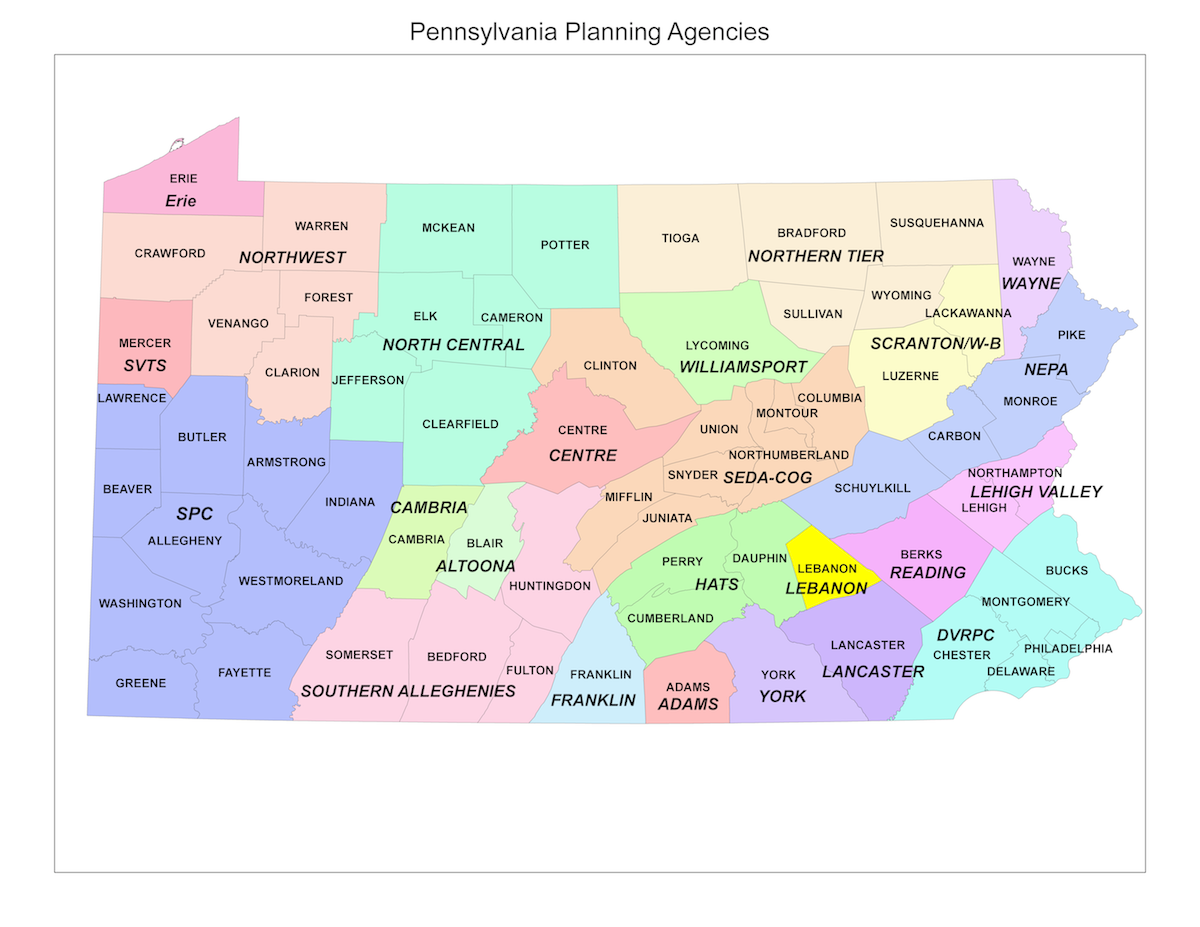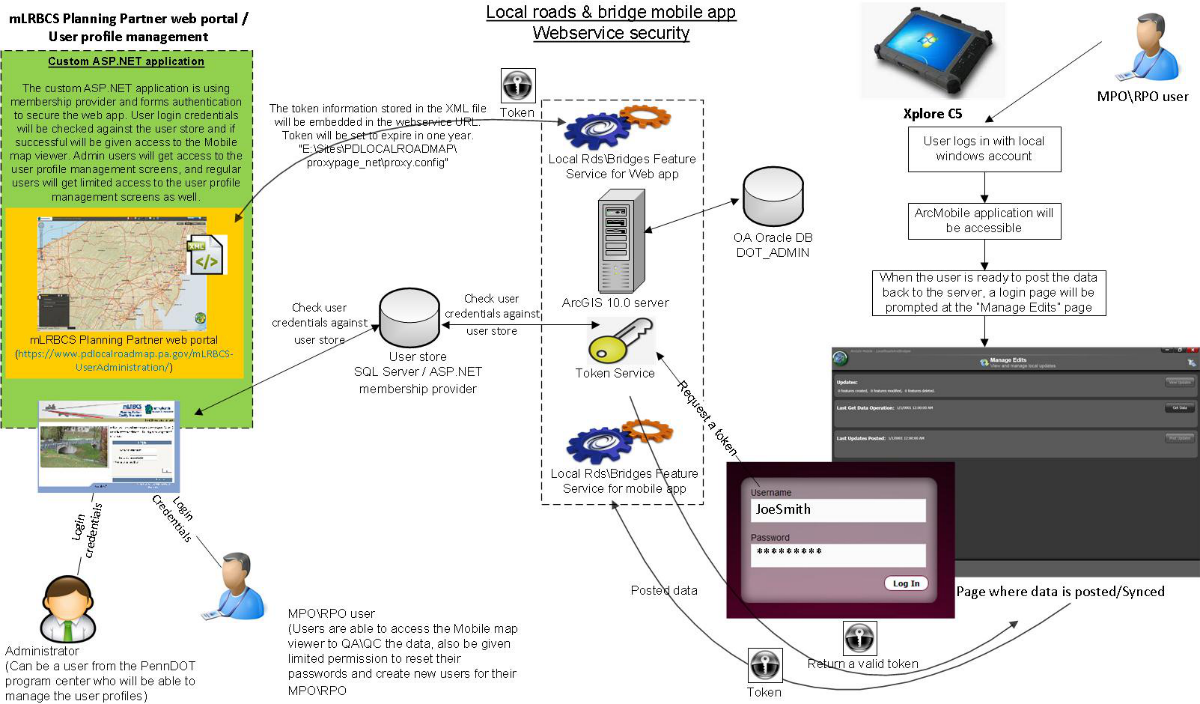Connecting state and local government leaders
Tablet app helps the state survey its complete road and bridge system.
Editor's note: This article was updated to correct the name of Xplore Technologies.
The Mystery of the Missing Bridges may sound like a Hardy Boys novel, but it was a real problem for the Commonwealth of Pennsylvania. Of course the bridges weren’t actually missing, but they might as well have been. There was no good way for state planners to know the number, condition and location of many of the smaller bridges in the state.
Pennsylvania keeps detailed information on its larger bridges because it uses federal funds to help maintain and repair those whose spans are more than 20 feet across. All smaller bridges, thousands of which exist within one of the largest northeastern states, are the responsibility of nearby local towns or municipalities. Because the state wasn't responsible for their maintenance, over time locations of the bridges disappeared from the records.
"We knew we wanted to be able to holistically view the complete road and bridge system," said Pennsylvania Department of Transportation Planning Specialist for the Bridge Program Matthew D. Long. "But we didn't have a good way to make that happen other than collecting piles of paperwork from our planning partners, which would have to then be driven into the state office."
Instead, Long and the state created an app whereby local transportation planners working for counties and municipalities could survey the roads and bridges in their local areas, and report that information back to the state quickly and accurately.
The backend part of the system was set up to run on an Oracle database that is served by three clustered servers running ArcGIS. One handles mapping data. One manages the mobile clients for the bridge app. The third runs the Web-facing front end. But even with a backend ready to accept data, someone still had to go out and find the missing bridges.
"In Pennsylvania, a lot of people wear many hats," Long said. "So we knew we needed a simple system for recording data in the field because many of our planning partners wouldn't be GIS specialists."
The tool selected for the bridge hunt was the rugged ix104c5 tablet from Xplore Technologies. The unit features a sunlight-readable display, important for people who would be working exclusively outside, and it is rated to survive drops of up to seven feet in height. That's above the standard mil-spec, so it’s perfect for conditions in rural parts of the state. It also has a battery life of more than six hours, enough for workers to spend almost all day in the field without needing to recharge.
By leveraging approved funds from the Federal Highway Administration, Pennsylvania purchased the tablets and the software, as well as the customization needed to make it all work with the bridge program, for $525,000.
With the Mobile Local Roads and Bridges Data Collection System (mLRBCS) in place, the tablets were distributed to the 23 planning partner agencies that would be assisting with the bridge hunt. Once all the people and technology were in place, Long still had to figure out how to best locate the bridges, especially the small ones that had dropped off — or were never included in — anything resembling an electronic record.
To solve that problem, Long overlaid topography maps with the known road network. Every time a road crossed a stream or a depression, another database was checked to see if there was a known bridge in that location. If not, the planning partners were sent out to discover what, if anything, was actually there.
If a bridge was found, the field workers would use the tablets to record information about it, such as its overall length, the number of lanes and any special particulars about the approaches on both ends. Four images were then taken of the bridge showing specific angles and surfaces. The tablets are able to stream collected data back to state headquarters for recording, but they can also store data until a connection is available, a feature that had to be added to account for the many rural areas of Pennsylvania where bridge hunters wouldn't have a wireless signal.
Security on the mLRBCS system was also added. Users going into the system through the Web portal need to provide their names and passwords. Tablet users actually go through a token-based identification process whereby both the individual system and the authorized user are validated before anything can be uploaded to the database.
In the process of surveying bridges, it was discovered that some roads had also started to disappear from the state's radar. Local or privately owned roads are not the responsibility of the state Department of Transportation, so they were never fully inventoried, and many fell off of the paper-based lists a long time ago. Even so, the state needed to maintain a record of the roads within its borders and report that information to federal officials. For that task, the state is using a program known as the Road Condition Survey Application, which uses the same technology as the app for bridges.
The mLRBCS app has been running for about a year and half. Because the project has not yet been completed, the cost savings to the state are not fully known. However, Long estimates that for the two mobile efforts, the Local Road and Bridges Application and the Road Condition Survey Application, the state has saved about $4 million that it would have spent had the survey been conducted without the app. More important, the state has now identified and can properly monitor the heath and condition of 4,500 rediscovered bridges and 65,000 segments of local and private roads. And with mLRBCS now solidly in place, finding all the lost bridges and roads of Pennsylvania is only a matter of time.
NEXT STORY: Report: Government website satisfaction drops





